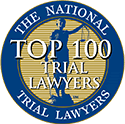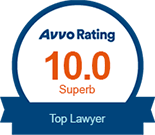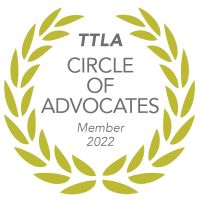After a car accident, you’ll likely have many questions, such as how to deal with an insurance company or law enforcement officials, what you should do with photos you’ve taken of the scene, and whether you should hire an attorney. Our team at The Haynes Firm has developed this Motor Vehicle Crash Toolkit to answer some of your questions and help you understand what steps you can take to facilitate filing a successful claim.
To discuss the details of your case with one of our Johnson City attorneys, please contact us at (423) 451-4999.
The first thing to remember is not to panic. Do a quick inventory of your body from head to toe. If anyone else is in the vehicle with you, speak to one another and ensure that everyone is conscious and able to communicate. If any children cannot speak for themselves, do a quick inventory of their body, particularly examining the head and face.
If anyone is complaining of significant pain or is potentially injured, call 911. Be prepared to describe as best you can the injuries, location of the pain, and in particular, whether someone may have lost consciousness or is experiencing head trauma or pain.
Once you have evaluated yourself and the passengers in your vehicle, if you are physically able, you can check on anyone else who was involved in the crash. If there is a witness on the scene, let them check on the other driver(s).
If you speak to the other driver, you should not engage in extensive communications regarding who did what or who is at fault. If the other driver or a passenger wants to talk about fault or offer apologies, you may listen and file it away in your memory or write down what they’ve said. Be very careful as to what you talk about. If there is a dispute over responsibility or if the driver or passengers are aggressive, it’s best to just return to your vehicle.
Once you have evaluated whether anyone is seriously injured, contact law enforcement if that’s not already been done.
If you are injured, you are not likely going to be able to identify any witnesses at the scene. If you are able, you can ask someone to identify anyone at the scene who may have witnessed the event.
Ask them to do anything that you can’t do for yourself, such as:
Getting witnesses early is particularly important in red light crashes. Red light crashes are some of the most dangerous and often cause serious injury. If the intersection didn’t have cameras, it could be difficult to prove who was at fault. People who run red lights often claim they had the green, leaving you with only your testimony versus theirs.
If you or someone at the scene of a red-light crash can identify an eyewitness, gather their name, address, and phone number. Often, law enforcement investigations are inadequate. Law enforcement officers often fail to properly document contact information for eyewitnesses or, worse, fail to interview them at all.
If you were taken away in an ambulance but are able to communicate with a friend or family member, it may be wise to ask them to come onto the scene and assist in identifying potential eyewitnesses and taking photographs. Anything you can do to prevent a “he said, she said” scenario in a motor vehicle crash, particularly a red-light case, is to your benefit. Even if there is no red-light camera at the intersection, sometimes there are cameras at nearby businesses, such as a gas station or pharmacy. It can be a very good idea to communicate with such a business and request any video footage that may include the crash, or a portion of the crash, be preserved.
It’s also a good idea to put your request in writing, retaining a copy for yourself. If you don’t hire an attorney quickly and that information is not secured, that potential evidence could be lost forever.
You will likely be asked at the scene whether you want an ambulance called. If you are hurting, it’s probably best to go directly to the hospital to get checked out. If you are in pain, you need to seek medical care so that your symptoms can be documented. An automobile insurance company will often take the position that if symptoms are not documented, then they didn’t exist.
So, it is critical you:
If physical therapy is ordered, find a way to do it. If you want to ask your primary care physician whether chiropractic care would help, feel free. Many accident victims find that chiropractic care provides the relief they can’t get from traditional medical treatment.
If you want to see a chiropractor to treat some of your injuries, we suggest having your primary care doctor or specialist recommend that you get chiropractic care and notate your medical record. Ensuring that you have written documentation of this recommendation may be necessary if the defendant’s insurance company argues that you sought an “inferior treatment” to increase medical costs or that the extent of chiropractic care was unnecessary and only led to greater expenses. To prevent the defendant’s insurance company from asserting the latter (or at least to have a counterargument if the insurer does), see your primary care physician within 2 or 3 months after beginning your chiropractic treatment to evaluate your progress and determine whether you should continue seeing the chiropractor.
There are two primary sources for paying for any medical care you require. The first is you. If you have medical insurance, it is a good idea to inform medical providers that they should send your bills to your medical insurer. If you do not have medical insurance, you should contact your own auto insurance company and ask whether you have a “medical payments provision” within your policy. This is often referred to as “Med-Pay.” If so, inquire as to how you can best use the medical payments coverage as you incur bills for necessary medical care.
When speaking with law enforcement, tell them as best you can what occurred. Try not to speculate, try not to guess, and certainly do not intentionally misrepresent what happened.
If you are asked whether you are injured, it’s probably best to advise that you are unsure unless, of course, you know that you have sustained an injury or are in pain. We’ve been involved in countless cases where a person has suffered a significant injury but, at the scene, advised the police officer that they didn’t think they were injured. The law enforcement officer will document “no injury” on the crash report, and that information is almost always used against an injured person.
Also, immediately after a car crash, adrenaline is high, and you subconsciously want to believe that you are going to be fine. However, all too often, just hours or a day or two later, a car crash victim will experience significant pain and recognize only then that they are injured. So, it’s probably best to respond with ‘I do not know yet, I’m going to get checked out’ when you are asked at the scene whether you are injured.
Your default setting should be to leave the vehicle exactly where it came to a final rest in the crash. In some circumstances, it may be necessary to move the car. However, absent a compelling reason to move the vehicle, it’s best to leave it so that it can be documented by an investigating officer and/or photographed in case there’s a question about how the accident occurred.
If you have an opportunity, before moving a vehicle, it would be ideal if you could take some quick photographs of the location of the vehicles relative to the road and relative to markers alongside the road (such as a telephone pole or mile marker). You can also ask a friend or witness to take photos if you’re unable to on your own. If you were hospitalized, someone can contact law enforcement or obtain a copy of the crash report to determine whether any photos of the damaged vehicles and/or the scene were taken. Photos of vehicles at a storage facility are certainly better than no photos at all.
Photograph visible injuries. The importance of a photograph showing an injury is significant. Over time, your bruises, cuts, scraps, and other wounds will heal. A judge or jury cannot accurately imagine the severity of the harm you suffered. Photos of your injuries serve as a graphic representation allowing others to see what you have endured.
Note that the defense can request to see any photographs you took concerning the accident and your injuries. Still, if the defense lawyer asks if you were visibly injured, and you answer “yes,” you’ll be able to back up your statement when their next, inevitable question is, “Do you have proof?”
As soon as you can, you should notify your own automobile insurance company that you’ve been involved in a crash. Even if you think that it was the other driver’s fault, and even if you are concerned that your own insurance rates will go up, you must notify your own insurance company. Most insurance contracts require that your company be notified soon after a crash occurs.
If you were not at fault for the crash, your insurance company should not hold that against you and should not raise your rates. Often, your own automobile insurance company is the best source to obtain quick repair of your vehicle or a check if your vehicle is totaled. This is because the other driver’s insurance is not as interested in your needs as they are their own insured’s. Their contract is with their insured, not you.
It is usually in your best interest to let your automobile insurance company handle the property damage to your vehicle. If another party is at fault, your company can later obtain reimbursement from the at-fault party’s insurance company.
The at-fault driver’s insurance company will not be in a position to pay for any medical care as you obtain it. Remember, their obligation is to their insured, not you. The contract with their insured states, in general, that they will protect their insured up to the amount of insurance their insured purchased.
The medical bills you incur do typically become a part of your claim for compensation. But if you are entitled to compensation, the insurance company will expect to pay you in a lump sum. This means that until you are prepared to resolve your case in full, you must find a way to pay for your medical care. Sometimes that is difficult or impossible. Contact your personal injury attorney to discuss any options you may have, but there are usually no easy answers.
If you are out of work because of a motor vehicle crash, keep good documentation on the amount of time you miss work and obtain records from your employer showing how long you were out of work, or how much time you missed as a result of having to go to doctor appointments, physical therapy, chiropractic care, etc.
Ultimately, you will have to prove that you could not return to work. So it is a good idea to have a doctor either document in your record that they are taking you off work or obtain a handwritten note of some kind indicating that the physician feels that you should not return to work for some time.
In this area of law, just about everything is typically contested by an insurance company or defense lawyer, so the more proof you can provide, other than just your own testimony, the better off you will be.
Most attorneys and insurance companies will see what information can be discovered on social media sources. Anything posted on social media is potentially subject to discovery by a defense lawyer and presented in defense of a claim. If a person claims that they are unable to work, but they post a photo of themselves, say, riding in a boat with friends during that same time, the picture can be used against them. Just about anything posted on social media, even if it has nothing at all to do with your case, can potentially be used against you.
What do you do with the photos of your vehicle and injuries?
Simply leaving them on your phone isn’t the best idea. Your phone could get damaged, leaving you without photographic proof of your injuries. Back up your photos, but don’t do so by posting them on social media, especially if you may have to file a lawsuit for your case. Sharing your photos online may do more harm than help.
And it’s not just photos of accident-related matters you should keep off social media. Avoid posting anything about your crash. The defense lawyer may search your accounts for any and all information that may contradict your claims.
In cases of catastrophic injury, sometimes care pages are set up. If you have questions about what is appropriate to post, ask an attorney.
Talk to a lawyer fairly early in the process. Almost all attorneys will provide an initial free consult. Be aware, however, that some attorneys will immediately request you to come in to sign the retainer agreement, and that is not always in your best interest. If you’ve been in a significant crash, with significant injuries, then it is almost always necessary you have an attorney.
Be sure to hire a lawyer who will be worth the contingency fee that they charge. Almost all attorneys in Tennessee will charge at least a 1/3 contingency fee on the recovery. Some attorneys are worth that; others are not.
Certain types of evidence may only be available early in the process. For instance, “smartphone” evidence, such as text, or Internet usage, may only be available for a very short time following the crash. Actual telephone call histories are typically maintained by Verizon, AT&T, or other cellular telephone service carriers for a longer period. We often will obtain 911 telephone recordings if available, as these recordings can sometimes provide significant evidence, including witnesses that may not have stayed to speak with law enforcement.
There are other things an attorney can do early on that could play an important role in whether you can obtain justice in the case. Like anything else, some attorneys work a case, preparing it for trial. Others do not, simply hoping that it will settle for a decent figure.
Obviously, the more significant the injury, the more important it is to obtain an attorney with the experience, skill, know-how, and commitment necessary to take the case as far as it needs to go to obtain an appropriate resolution.
Schedule a free consultation with a Johnson City lawyer by calling The Haynes Firm at (423) 451-4999 or submitting an online contact form today.






